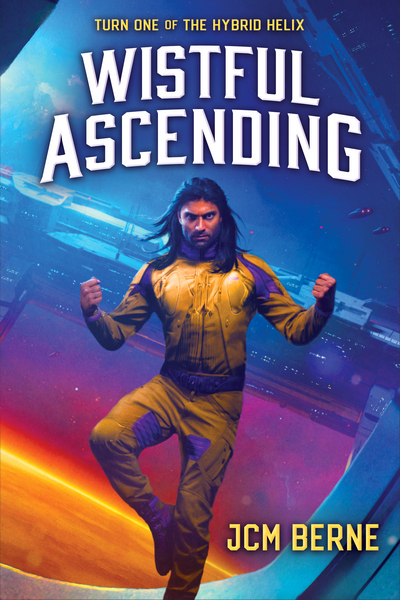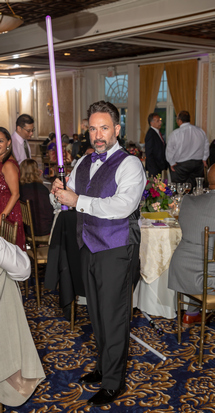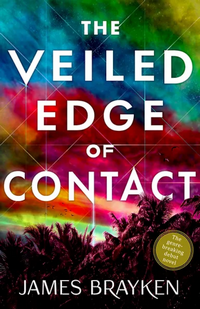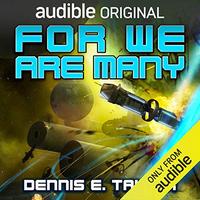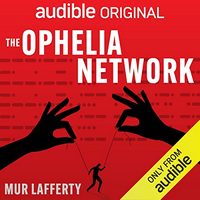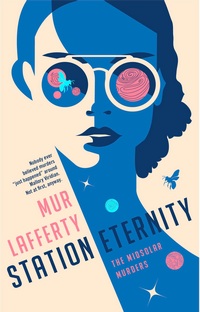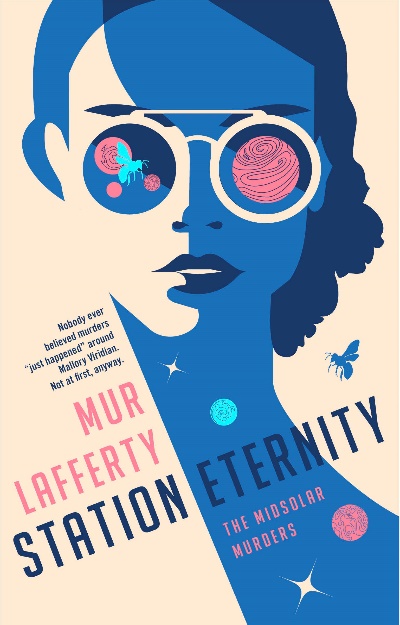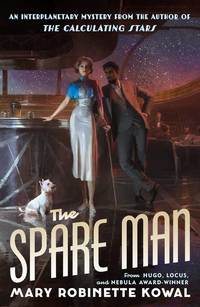 The Spare Man
The Spare Man
DETAILS: Publisher: Tor Books Publication Date: October 10, 2022 Format: Hardcover Length: 348 pg. Read Date: December 5-6, 2022

“The same, but different.”
Despite it being on my list since High School, I’ve never gotten around to watching The Thin Man or the sequels. I haven’t read Hammett’s novel, either (on a similar list for almost as long). I know enough about them to catch the occasional allusion and to make the right guess when it comes up in a trivia game or crossword puzzle.
Still, when I saw Kowall’s piece on CrimeReads last month, “On Writing a New Take on The Thin Man, Set in Space“, I was intrigued and my library put it into my hands a lot sooner than I expected.
So, all I know about the comparisons between this novel and the source/inspiration material comes from this piece. So I can’t judge how much is Kowall being clever and inventive with her reworking and how much is just Kowall being clever and inventive. I can tell you there’s a whole lot of Kowall being clever and inventive, though. I’m going to write this pretending it’s all Kowall so if I give her credit for something I shouldn’t have…whoops.
So I’ll tell you now a couple of things before we dive in: 1. I won’t appreciate everything she did in the way I maybe should. 2. (more importantly) You don’t have to know anything about the movies or the book to appreciate this novel. You just have to appreciate goodness.
With that out of the way, let’s dig in.
What’s The Spare Man About?
Tesla Crane—heiress, noted inventor, and celebrity—is on her honeymoon. Her new husband, Shalmaneser Steward, is a retired detective and isn’t exactly a non-celebrity either. They are traveling under assumed names and in disguise to stay under the radar. They do get their fair share of attention, however—thanks to something we don’t get to know about at the beginning, Tesla has a service dog—an actual dog, which is apparently a very big deal to see.
They’re on a cruise from the Moon to Mars, and the ship they’re on puts the lux in luxury (wow, that’s a lame line). They plan on spending their time drinking ridiculous cocktails, having fun with various activities on board, and other honeymoonish activities. Sadly, someone is attacked while they’re nearby and Shal’s old instincts kick in and he chases after the assailant. The victim dies and Shal becomes the prime suspect because running away from the victim in pursuit of someone only you see tends to make the ship’s security think you’re lying.
Shal is content to let the authorities take care of things, certain that by the time actual law enforcement gets involved, he’ll be exonerated. Besides, he’s retired. Tesla cannot sit by and wait and she investigates on her own (ultimately Shal will get on board, but Tesla will do the bulk of the work).
Tesla and Shal
The best part of this book is probably the relationship between these two newlyweds. She shows a couple in love. Not a meet-cute followed by chapters of misunderstandings and near-misses, not a love unrequited for whatever noble/stupid/bureaucratic reason, not a couple in the first blush of infatuation and love, nor a couple trying to recapture something or having doubts. They are in love, they respect and support each other, and they actually like each other. I see this so, so rarely in stand-alones or series that it just fills me with joy to see.
They’re not perfect (who is?), they bicker a bit—and there’s some lying back and forth—mostly of the “I’m not in that much pain” type (which they generally readily admit to when asked). But even then, it’s typically a lie told so the couple can accomplish something without the other being distracted by worry.
Sure, it’s their honeymoon, so they are a little extra-lovey-dovey. But you get the impression they’d been together for a while pre-wedding and that this is pretty much the way they are together (if only because of the way Gimlet interacts with them).
I cannot express just how much I loved this couple. I wish I could see things like this more.
Fantine
The only element of this book that I liked almost as much as their marriage was Tesla’s lawyer, Fantine. Fantine isn’t crazy about the way that Tesla and Shal are being treated and starts threatening various lawsuits.
Depending on where they are in the journey, there’s a communication lag between the ship and her office, so she’s continually responding to people 3-8 minutes after they’ve said something. The comic opportunities from that alone are great.
Add in Fantine’s aggressiveness and you have gold. Think Dr. Perry Cox, but angry, her gift for creative insults and threats are gold. Fantine is clearly a power to contend with and has lawyers and security officers on the ship jumping to keep her from making the lawsuits she’s planning from becoming even bigger. I could read a novella full of nothing but her yelling at people.
So, what did I think about The Spare Man?
I feel like I should be raving over this, shooting up fireworks, and putting on a song and dance show here, but I can’t quite. The entire time I was reading, I wondered why I wasn’t liking it more.
The dialogue was great—especially when it veered toward the banter (between Tesla and Shal, either of them bantering about the other, between them and a particular security officer). The characters leaped off the pages and were practically alive. The setting and all the SF accouterments were perfect. The mystery…was pretty good. Everything else I can think of to point to was outstanding.
But I never felt engaged with the work—I admire it, I can praise a whole lot of it, but I was never grabbed. It felt like an exercise, like someone executing a recipe or equation. Wonderfully executed, but it left me cold.
I expect I’m a minority report on that—at the same time, I want to stress that this is a really good book. I’m just saying that I feel I should be giving this 5-Stars, instead of the 4 I’m giving it. There’s just so much to relish, so much to enjoy in this book that you should really ignore this last section and go get the book. It’s taken a darker turn than I intended—or want to leave you with.
This really is a great mixture of SF and Mystery, with a classic feel to both elements and yet it’s very much something that could only be produced in this moment. Kowall captured something here and you should really check it out.

This post contains an affiliate link. If you purchase from it, I will get a small commission at no additional cost to you. As always, the opinions expressed are my own.
![]()



 I’ve got
I’ve got 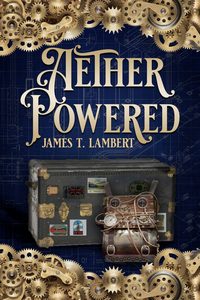

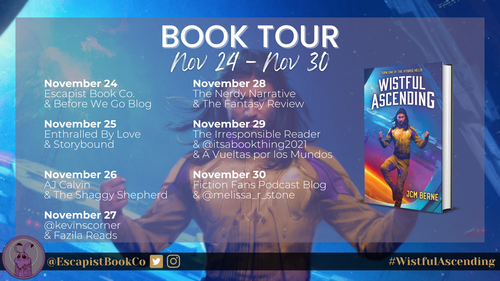
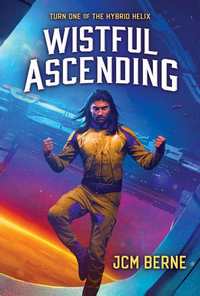
 The Title. Yeah, it’s fitting. But it’s not really an eye-catcher, is it?
The Title. Yeah, it’s fitting. But it’s not really an eye-catcher, is it?

